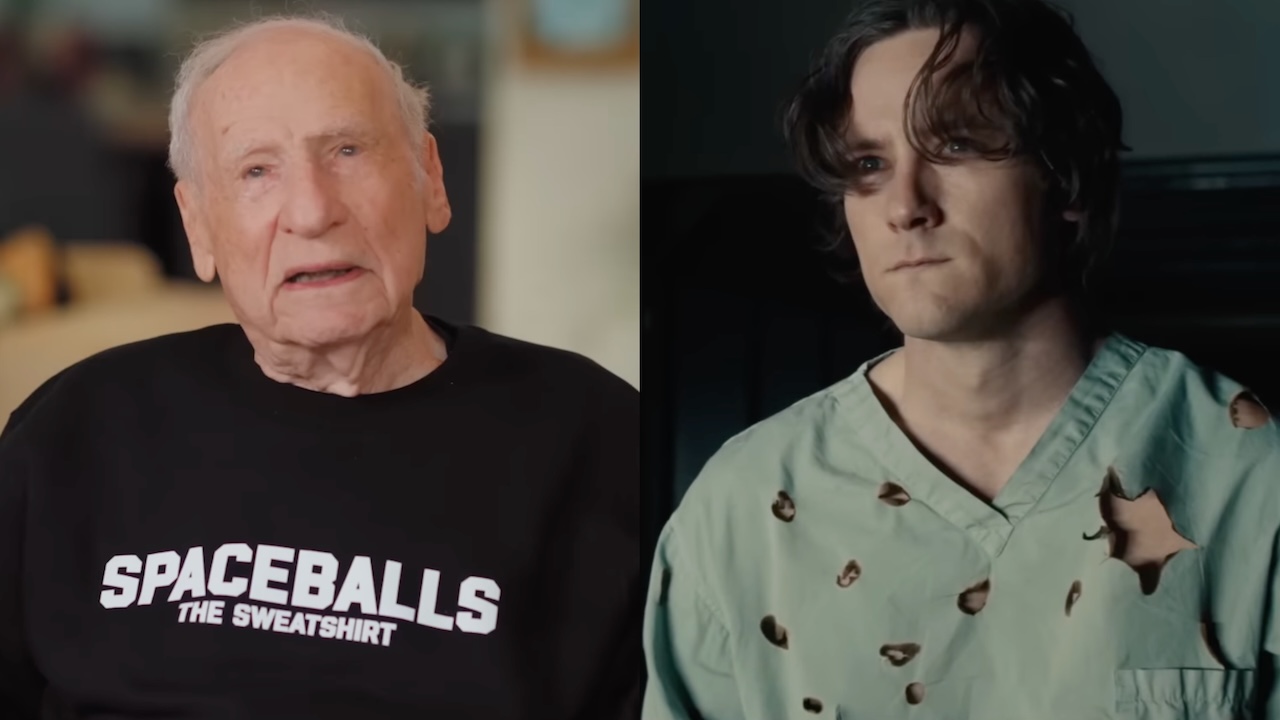Allison Williams Reflects On Get Out’s Bleak Original Ending
Get Out almost ended on a much darker note.

Few directors make a great movie on their very first try, as Jordan Peele did with his groundbreaking 2017 horror movie Get Out. The flick captivated audiences with its unsettling exploration of racism in America, cementing its place as one of the best movies of the 2010s and arguably, of all time. One of the film’s most powerful moments comes at its climax, which features a fateful moment for protagonist Chris (Daniel Kaluuya) that ends in a somewhat optimistic way. Yet the film initially had a much darker conclusion and, recently, one of the film’s stars, Allison Williams, reflected on it.
Allison Williams spoke with Comicbook.com amid the festivities at 2024 New York Comic Con. She discussed how the movie, one of only six horror movies ever to be nominated for Best Picture, initially concluded and why the team pivoted toward the more hopeful resolution audiences saw on screen. The M3GAN star recalled:
Well, it’s interesting because we all signed on to the movie with the original ending. It felt really honest, we live in America. If there’s a black man over a dying white woman’s body, and then there’s a house full of dead white people, we all kind of know how that’s going to go. And so, Jordan was pretty clear that he wanted the ending to speak to the truth of the situation. It ended with the Lil Rel character basically trying to get any last bits of information that Chris could think of. Like what? What? Is there anything else? There was film in the camera and there were all these things. It was basically like Chris or Daniel Kaluuya kind of going back into the prison and being like, ‘it’s over now.’ Basically saying, ‘Yes, I’m in prison for the rest of my life, but I put an end to this thing that they were doing and that’s enough.’
At the end of the film's theatrical cut, Chris is seemingly rescued by his cop friend, Rod (Lil Rel Howery), just as it seems the police arrive, sparking a moment of collective dread before the ultimate reveal. Jordan Peele’s initial vision for the ending had Chris arrested by the police despite having fought his way out of the Armitage family's sinister plot. This conclusion was meant to reflect the harsh realities of race in America, offering a more sobering statement on systemic injustice.
Allison Williams explained how the decision to change the ending came about after audience test screenings. In her own words:
What happened was that when we tested the movie, audiences went from like, ‘I’m at a ten out of ten this movie’s fucking awesome.’ To the ending, which was just like, ‘OOP!’ Everyone was like, ‘I feel so darkly sad, and this is too real.’ Basically. What Jordan realized, which is so brilliant, is that the light of two of the police lights on, Chris and Rose on me and Daniel created this reaction in the audience of the fear for him of what the presence of the police was going to mean for his future. You got the message of the long ending. Then he’d read it, and he shot in just that moment with just those lights. And then, you had the release and the triumph of it being, Lil Rel showing up, and it was like, Rod was this savior.
The final version of Get Out retains the tension of Chris’ encounter with the police but offers a reprieve as Rod appears instead of law enforcement. Addressing the racial anxieties that drive the film, this alteration allows audiences to leave the theater with a sense of triumph rather than the gut punch of Chris’ unjust imprisonment. Thankfully, this original ending was better left on the cutting room floor.
Jordan Peele has spoken about how the political climate influenced his decision to scrap the OG ending at the time. With real-life stories of racial violence flooding the news, Peele recognized that audiences were already feeling the weight of these grim realities. So, instead of doubling down on the darkness, he provided viewers with a moment of hope.
In my eyes, this decision ultimately helped the film solidify its place as a cultural milestone, perfectly balancing horror with sharp social commentary and delivering a finale that struck a deep chord with audiences. Those final few minutes are very unforgettable, and chances are that due to Mr. Peele's shrewd creative choice, we'll never stop talking about them.
Your Daily Blend of Entertainment News
You can stream Get Out now with a Peacock subscription. Meanwhile, Allison Williams -- who wasn't just was in New York City to discuss her past work -- has an upcoming horror movie on the docket. She's set to star in the highly anticipated M3GAN 2.0, a sequel that promises to be one of the major horror releases on the 2025 movie schedule.

Ryan graduated from Missouri State University with a BA in English/Creative Writing. An expert in all things horror, Ryan enjoys covering a wide variety of topics. He's also a lifelong comic book fan and an avid watcher of Game of Thrones and House of the Dragon.
